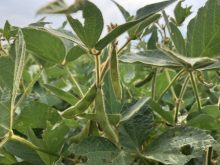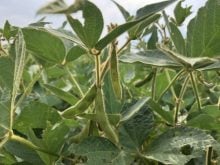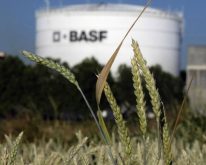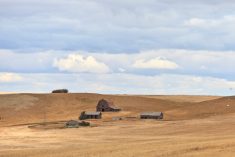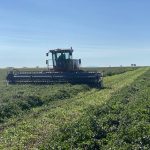A ban on dicamba applications in Missouri could end by the weekend, a state agriculture official said Monday.
“The intent was never for this to be a long pause,” Missouri Agriculture Director Chris Chinn told the U.S. farm show Agritalk on Monday, after Missouri became the second state to announce such a ban so far this month.
“A lot of farmers are finding a lot of success with this product (dicamba), but there are a lot of farmers who have a lot of damage.”
Read Also

India slaps 30 per cent import duty on yellow peas
India has imposed a 30 per cent duty on yellow pea imports with a bill of lading date on or after Nov. 1, 2025.
Missouri’s dicamba ban comes in the wake of over 130 complaints about drift injuring nearby crops from across the state, and “that number just keeps growing every day,” she said.
Missouri’s ban on dicamba application provides for civil penalties of up to US$1,000 per violation as well as restitution payments where deemed necessary.
Chinn said the state hoped to have the product back in farmers’ hands this week, “as soon as (dicamba manufacturers) get us a label we can agree upon.”
Lifting the ban, she added, could “very easily” happen “the same day we get that label.”
Monsanto, which makes dicamba and produces dicamba-tolerant soybeans and cotton sold under its Xtend brand, said it will “actively engage” in an expedited investigation and consideration of “additional special local-need labeling restrictions for the rest of the 2017 growing season,” online publication Ag Insider reported.
It’s estimated over 200,000 acres of soybeans have been damaged by dicamba drift, a University of Missouri weed specialist told Brownfield Ag News on Friday.
Dicamba use is up because of plantings of Xtend soybean and cotton. But unlike Xtend crops, many other crops, including fruit trees and vegetables, are not dicamba-tolerant.
Arkansas recently approved an emergency rule allowing fines of up to US$25,000 for “egregious” misuse of dicamba and was expected to implement a 120-day ban on dicamba applications on Monday in the wake of almost 600 dicamba spray drift complaints.
Monsanto says Arkansas is an anomaly. Part of the issue is that while the U.S. Environmental Protection Agency has approved Monsanto’s less-volatile form of dicamba — branded as Xtendimax with VaporGrip Technology — Arkansas’ state government hasn’t.
BASF also makes a less-volatile dicamba, called Engenia.
— Allan Dawson is a reporter for the Manitoba Co-operator at Miami, Man.




